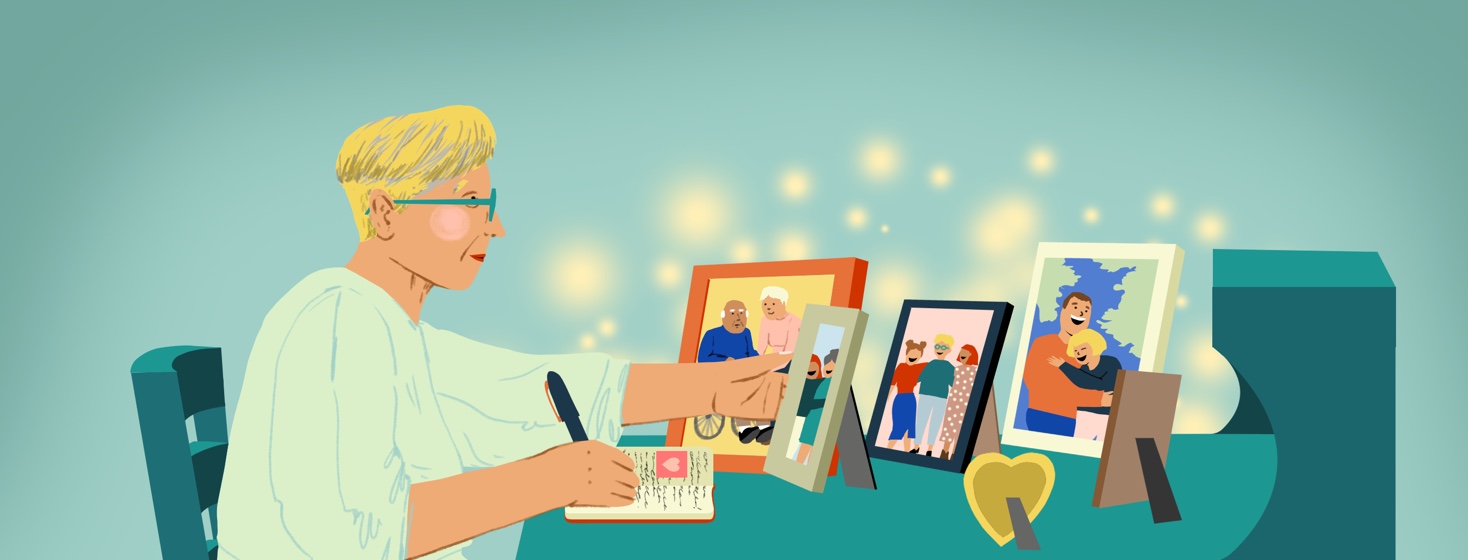Stand By Me: A Tribute to Caregivers
This month I started yet another round of chemotherapy. I immediately felt sad and hopeless that the cancer had advanced again. It is easy to fall inside myself, to be reflective and uncaring about worldly matters. So let me be clear; while life hasn't always been a bed of roses, I pride myself on surviving and thriving through every part of my journey. This way of living has brought me strength and the reason to be.
Back in the journey to heal
I am but one woman in seventy-eight who now lives with a keen sense of awareness that death will come to us one day. Of course, this reality has always been the case, but we manage a denial system and push that thought away. Busy engaging in life activities, dying wasn't relevant. Most important to me were: Finding a partner, having children, working at a job I love, and still allowing time to love and help others.
I hardly knew how well this lifestyle served me as the most critical element of my life. I believed in working hard and playing hard and have not lost this in the mix of illness.
Finding resilience
So how does a person turn around once again and find their resilience? Getting over the initial shock, I looked around the room and realized this pain was not only mine but also experienced by caregivers, my mighty bunch of sons and daughters-in-law, my siblings, and dear friends.
But, most of all, I could see the immediate sign of despair across my husband's face. Although he was not someone to ask for help for himself, I managed to ask him straight on.
Honey, what does this mean for you?
He answered I am sure I am not alone with this and think you should write about caregivers and caregiving. Then, without hesitation, he shared how cancer affects him.
- Losing our Dream: Our life now revolves around cancer. Unfortunately, it amounts to the devastation of our dreams.
- Being Jolted by Reality: Each doctor visit makes it clear that cancer is not going away but is likely to worsen no matter what we do. He worries about whether he can manage when things get worse.
- Handling Fear and Helplessness: He wonders if he is doing enough to help me survive the dark days. He has done everything and more. I felt a need to be clear and reassure him.
- Feeling Frustrated: Realizing that things may change moment to moment. My husband reports wanting to be prepared to have everything I may need. For example, if one time he found I was able to eat a part of a bologna sandwich, he felt relief and ran to the store to buy an additional pound.
Yet, the real frustration lies in the importance of providing my safety, hydration, and food, not for enjoyment but to sustain life. He realized that he had to learn more about investments, monthly bills, and even cards we send to spread joy. His ultimate task was to find a way to cope while not trying to replace the value I brought to the family and him.
- Facing Anticipatory Grief: He admitted he felt he was facing a "crisis of loss" and did not want to burden me with his pain and fears. Fear of death and the feelings leading to anticipatory grieving represents a deep sadness that resembles the same intensity at the actual time of loss.
Acknowledging loss and heading to our future
We had to learn a new life to live. I realized this journey was a two-way street. With much gratitude, I became aware of the need to express love and care for my husband, my primary caregiver. I continued to ask him about his well-being and if there was anything I could do for him in appreciation of the care he provided.
- Make Your Caregiver the Center of Attention: George now becomes the topic of discussion when someone asks if there is anything they could do. I wondered if they would reach out to chat or invite him to go to breakfast or lunch. I likewise had to prepare George to say yes. We recognized that he could safely leave the house at intervals.
- Recognize the Power of Knowledge: We developed several family meetings and texts. Be sure to share information about reports from the treatment team. We especially wanted to include my sons and their families, so they would be assured they understood everything that was happening.
- Gift Items to Those You Love: I began to account for my tangible possessions and made gifts of jewelry and objects I had gathered through the years.
- Get Organized: Together, we organized vital information like insurance policies and placed them in a file with the instructions.
- Over Communicate: We communicated and sometimes overcommunicated about every subject along the way and developed a forum to face this disease together.
- Reaffirmed our Faith: We included our faith leaders in the conversation about our belief in God and each other. We acknowledge that we have all we need if we continue to believe.
- End of Life Decisions: I started a file on my laptop with my end-of-life wishes, including where I would like to be at the time of death and thoughts about funeral arrangements. Once again, this is an effort to reduce the burden on my family.
I pray that you find your peace as you proceed through the fight of your life.
Editor’s Note: We are extremely saddened to say that on August 9, 2024, Ellen Reed passed away. Ellen’s advocacy efforts and writing continue to reach many. She will be deeply missed.

Join the conversation